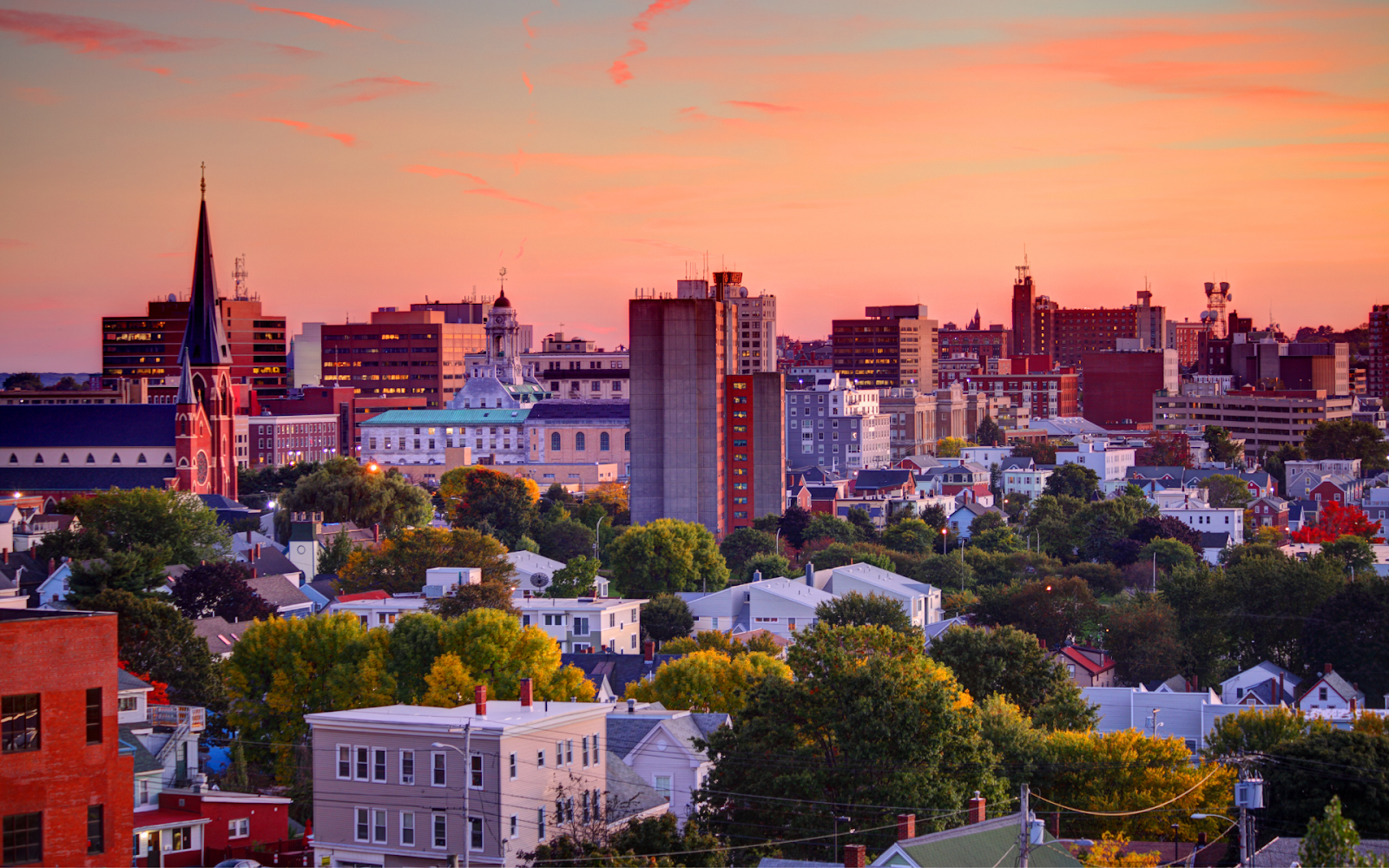
Key Takeaways:
- Legal Landscape: Maine permits the use of THC for both medical and recreational purposes, but users must adhere strictly to possession and cultivation limits to avoid severe penalties.
- Federal Impact: The conflict between Maine's state laws and federal restrictions continues to pose challenges for THC businesses, particularly in banking and comprehensive research.
- Future Developments: Ongoing legislative changes in Maine may further ease THC regulations, reflecting growing public support and the potential federal shift towards decriminalization.
At Soul, we are proud to offer high-quality CBD and THC products that comply with local regulations and promote wellness. Our customers in Maine can confidently explore the full spectrum of benefits from our products, knowing that we prioritize education, compliance, and purity in every batch we produce.
This article aims to demystify the THC regulations in Maine, providing a clear and comprehensive overview for residents interested in integrating THC into their health and wellness routines. We will explore the distinction between medical and recreational use, the current laws that govern its possession and use, as well as the impact of federal regulations on local laws. Additionally, we'll discuss legal alternatives available within the state and look ahead to what the future might hold for THC legislation in Maine.
Understanding the Difference Between Medical and Recreational Use
In Maine, THC is legally accessible under two distinct categories: medical and recreational use, each governed by different sets of rules and intended for different user groups.
Medical marijuana has been legal in Maine since 1999. Patients with a qualifying medical condition, such as chronic pain, glaucoma, or multiple sclerosis, can obtain a prescription from a licensed physician. Medical marijuana cardholders are allowed to possess significantly more cannabis compared to recreational users and can also cultivate more plants for personal use.
On the other hand, recreational marijuana was legalized in Maine following a 2016 referendum. Adults aged 21 and over are permitted to possess up to 2.5 ounces of marijuana, which is one of the highest allowances in the United States. Recreational users can also grow up to three flowering marijuana plants for personal use, and purchase cannabis products from licensed retail outlets.
Current Laws Governing THC in Maine
Legal Age and Possession Limits
In Maine, the legal age for purchasing and possessing recreational cannabis is 21 years and older. Adults within this age group are allowed to possess up to 2.5 ounces of marijuana flower or its equivalent in other forms such as edibles or concentrates. This possession limit is comparatively higher than many other states, reflecting Maine's relatively liberal stance on cannabis use.
Cultivation
The state allows adults to cultivate up to three flowering marijuana plants for personal use at their private residences. These plants must be grown in an enclosed, locked space that is not visible from public areas to prevent theft and ensure minors do not have access.
Retail Sales
THC products can be purchased from licensed dispensaries and retail outlets across Maine. These facilities are required to comply with state regulations that include security measures, product testing for potency and contaminants, and clear labeling to inform consumers about the product they are purchasing.
Consumption Restrictions
Public consumption of THC, whether through smoking, vaping, or any other method, remains illegal in Maine. THC must be consumed in private properties away from public view. This law helps to maintain public decorum and reduces exposure to secondhand smoke, aligning with state efforts to limit the impact of cannabis use on the general public.
Driving While Intoxicated
Driving while under the influence of THC is strictly prohibited. Maine law uses a combination of traffic stop observations, field sobriety tests, and where applicable, drug recognition expert evaluations to enforce this law. The goal is to maintain road safety by deterring impaired driving, which can significantly increase the risk of accidents.
Penalties for THC Possession in Maine
Despite the legalization of medical and recreational cannabis, there are still significant penalties associated with violating Maine's cannabis laws. Here's a detailed look at the consequences for non-compliance:
- Exceeding Possession Limits: Possession of more than 2.5 ounces but less than 8 ounces is considered a misdemeanor in Maine, which may result in up to six months in jail and a fine. Possessing over 8 ounces escalates the charge to a felony, potentially leading to more severe penalties including longer jail time and higher fines.
- Unauthorized Cultivation: Cultivating more than the allowed number of plants or growing in a public or unsecured space is illegal. Penalties for unauthorized cultivation depend on the number of excess plants; minor infractions might attract fines and potential community service, while significant violations—such as large-scale cultivation—can lead to felony charges.
- Sale and Distribution Without a License: It is important to note that selling THC without proper licensing or distributing it can result in serious legal consequences. Engaging in cannabis sales without a license is treated as a criminal activity and is prosecuted under state law, with penalties including imprisonment, substantial fines, and a permanent record of a felony conviction.
- Consumption in Public Places: Using THC in public is not only illegal but also subject to fines and community service. Repeat offenses can lead to increased penalties, including larger fines and possible misdemeanor charges depending on the circumstances and frequency of violations
- Driving Under the Influence: Penalties for driving while impaired can include a license suspension, fines, and mandatory participation in substance abuse treatment programs. Severe or repeated offenses may lead to jail time and increased legal consequences.
Impact of Federal Laws on Maine's THC Regulations
Federal Illegality
Despite Maine's legalization of both medical and recreational cannabis, THC remains classified as a Schedule I drug under federal law, a category reserved for substances deemed to have no accepted medical use and a high potential for abuse. This classification not only creates a legal paradox but also discourages financial institutions and other corporations from associating with cannabis businesses. Furthermore, federal employees and those with federal contracts must comply with federal drug-free workplace laws, irrespective of state law.
Banking and Business Challenges
The federal illegality of cannabis causes significant operational difficulties for THC-related businesses in Maine. Most banks, being federally insured, avoid offering financial services to cannabis-related enterprises to steer clear of potential legal consequences, which could include criminal charges. This lack of banking services forces many cannabis businesses to operate entirely in cash, making them targets for theft and complicating everyday financial practices like paying taxes or salaries.
Research Limitations
The federal status of cannabis also significantly restricts research into its effects and benefits, due to regulations and difficulties in obtaining research-grade substances. Maine's ability to create informed policies related to medical cannabis programs is hindered by this lack of research. This deficiency in scientific evidence can potentially impede the development of effective programs and leave a significant gap in the understanding of the long-term effects of THC use.
Cross-Border Enforcement Issues
Even though Maine has legalized THC, federal law enforcement agencies maintain the authority to enforce federal drug laws within the state. This can lead to situations where individuals legally participating in Maine's cannabis markets could face federal penalties, including arrest or prosecution, particularly on federal properties such as national parks or military installations where state laws do not apply.
Veterans and Medical Cannabis
The conflict between federal and state law particularly affects veterans, who may benefit from medical cannabis for conditions like chronic pain or PTSD. While Maine allows the medical use of cannabis, federal laws prevent the VA from recommending or assisting in obtaining medical cannabis, leaving veterans to navigate these waters on their own and potentially risking their federal benefits if they use cannabis as a treatment.
Legal Alternatives to THC in Maine
CBD Products
Cannabidiol (CBD) is a non-psychoactive compound found in cannabis that has gained popularity for its potential health benefits, including reducing anxiety, pain relief, and improving sleep. In Maine, CBD products derived from hemp (which contains less than 0.3% THC) are legal under both state and federal law. These products are available in various forms, such as oils, creams, and edibles, and do not require a prescription.
Delta-8 THC
Delta-8 THC is a cannabinoid that is similar to THC but with less potency and psychoactive effects. While not as strong, it provides many of the same benefits such as pain relief, relaxation, and appetite stimulation. The legal status of Delta-8 in Maine is a bit of a gray area; it is federally legal if derived from hemp, but state laws may vary, so users should confirm local regulations before purchasing.
Terpenes
These are aromatic compounds found in many plants, including cannabis, that influence their smell and taste. Terpenes themselves are not psychoactive but are thought to contribute to the therapeutic properties of cannabis. In Maine, products containing terpenes are legal, and they can be used to enhance the effects of CBD products or used in aromatherapy.
Kratom
Although not a cannabis product, kratom is another natural substance that some people use for pain relief and mood enhancement. The use of kratom is legal for individuals aged 21 and above in Maine. However, its use is controversial, and potential users should be aware of the ongoing debates regarding its safety and efficacy.
Future Outlook on THC Legislation in Maine
Increased Legalization Efforts
As public support for marijuana legalization grows nationally, Maine may see efforts to expand legal protections for cannabis use and decrease penalties associated with its use. This could include increasing the amounts individuals can legally possess or grow and broadening the legal use parameters to potentially include public venues under specific conditions.
Regulatory Refinement
In response to the burgeoning cannabis market and its integration into Maine's economy, state legislators are likely to refine regulations to ensure safety, prevent underage use, and control the market’s expansion. This could involve stricter licensing and operational requirements for dispensaries, as well as enhanced quality control standards to ensure product safety for consumers.
Medical Cannabis Expansion
There is potential for the expansion of medical cannabis programs as new research provides stronger evidence of its benefits for a wider array of health conditions. This could lead to an increase in the list of qualifying medical conditions under Maine's medical cannabis law, making it accessible to more patients.
Federal Legalization or Decriminalization
Changes at the federal level could dramatically alter THC’s legalities in Maine. If federal legalization or decriminalization occurs, it would resolve many of the current conflicts between state and federal laws, easing restrictions on banking, research, and interstate commerce related to cannabis.
Economic Impact and Taxation
Maine may adjust its tax strategies to maximize state revenue while supporting public health initiatives and substance abuse programs. Efficient tax models could fund educational programs about cannabis use and support local economies.
Final Thoughts
It's important for residents and visitors to stay informed about THC regulations in Maine. Understanding the nuances of current laws, the penalties for non-compliance, and the interplay between state and federal regulations is essential for anyone considering the use of THC for medical or recreational purposes.
Residents should also be aware of the legal alternatives available, which provide various benefits without the psychoactive effects of THC. As the state's legislation evolves, staying updated will ensure that individuals can make informed decisions and participate responsibly in Maine’s cannabis market.
Read also:
Frequently Asked Questions About THC Legality In Maine
Can tourists buy THC products in Maine?
Yes, tourists over the age of 21 can legally purchase THC products in Maine just like residents, as long as they adhere to the same possession limits.
Are there any legal protections for employees using medical marijuana in Maine?
Maine law prohibits discrimination against employees who are certified to use medical marijuana, but this protection does not extend to recreational use. Employers are still allowed to maintain drug-free workplace policies.
Is it legal to smoke THC in a rented property in Maine?
The legality of smoking THC in a rented property in Maine depends on the lease agreement set by the landlord. Landlords can prohibit the smoking and cultivation of cannabis on their properties.
Can I use THC in my car if it's parked?
Using THC in a vehicle, even if it is parked, is illegal in Maine. This applies to both drivers and passengers.
What are the labeling requirements for THC products sold in Maine?
THC products in Maine must be labeled with information including the amount of THC content, ingredients list, and a warning about the potential effects of THC.
Can I grow THC plants outdoors in Maine?
Yes, residents can grow up to three flowering THC plants outdoors in Maine, provided the cultivation area is secured and not visible from public spaces.
What are the advertising restrictions for THC businesses in Maine?
THC businesses in Maine are restricted from advertising that targets individuals under the age of 21, and advertisements must not be placed within 1,000 feet of schools, playgrounds, or churches.
Is it legal to possess THC paraphernalia in Maine?
Yes, the possession of THC paraphernalia is legal in Maine for individuals who are of legal age to use THC.
How does Maine tax THC products?
Maine imposes a 10% sales tax on recreational cannabis products and a 5.5% sales tax on medical cannabis products.
Sources:
- Hansen, C., Alas, H., & Davis Jr., E. (2021, June 30). Where Is Marijuana Legal? A Guide to Hemp Legalization. US News & World Report. https://www.usnews.com/news/best-states/articles/where-is-Marijuana-legal-a-guide-to-Hemp-legalization
- Washington DC Hemp Laws | WashingtonDCCannabis.org. (n.d.). Washington D.C. Cannabis Information Portal. https://washingtondccannabis.org/laws
- Inc, G. (2021, November 4). Support for Legal Marijuana Holds at Record High of 68%. Gallup.com. https://news.gallup.com/poll/356939/support-legal-Marijuana-holds-record-high.aspx
- Dorbian, I. (n.d.). Despite Some Stumbles, Total Sales In U.S. Cannabis Market Could Soar To $50.7 Billion By 2028, Says Top Researcher. Forbes. Retrieved October 18, 2023, from https://www.forbes.com/sites/irisdorbian/2023/02/15/despite-some-stumbles-total-sales-in-us-cannabis-market-could-soar-to-507-billion-by-2028-says-top-researcher/?sh=1f90e293164d






